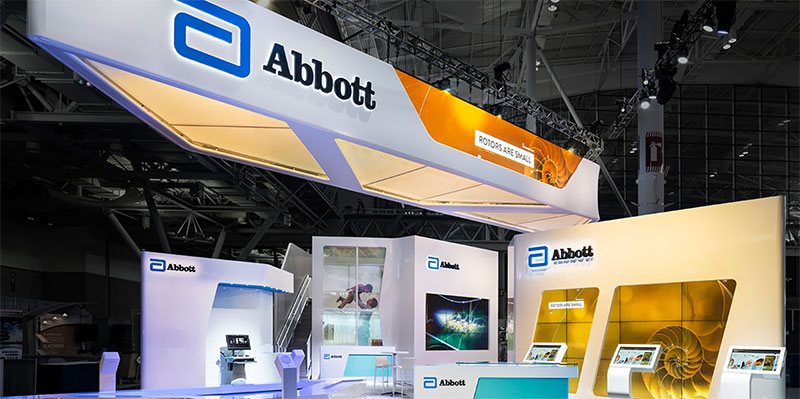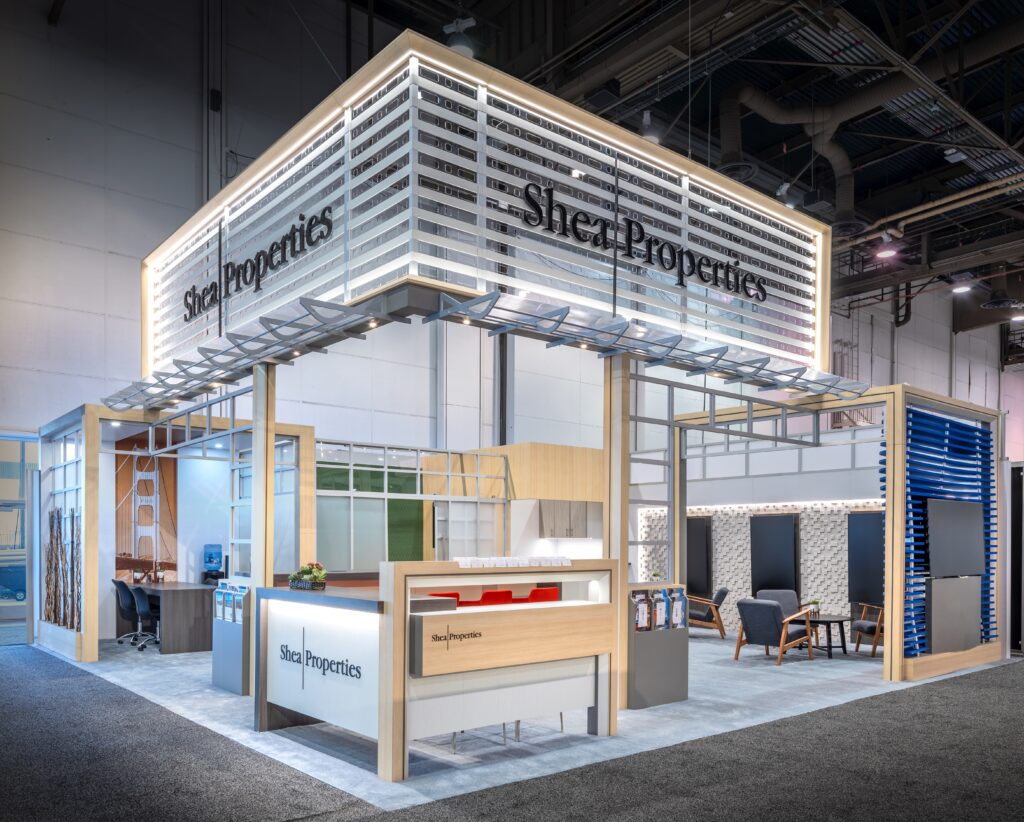You’ve heard of destination weddings, sure.
But what about destination meetings?
If you haven’t heard of the concept yet, you’ll likely run into it soon. B2B meetings, conventions, and trade shows are increasingly moving outside the hotel walls and into less conventional venues like malls, public places, and historical locations.
The destination meeting has been considered a trend for a few years now, which means that they’re likely here to stay.
In this article, we’ll examine what’s behind this shift and discuss how a change of venue can have a positive impact on the attendee experience.
What Are Nontraditional Venues?
A non-traditional venue can be any space that wasn’t built with the corporate conference, networking event, or trade show in mind. This can include anything from schools and parking lots to castles, museums, and nightclubs.
Benefits include:
- Destination meetings help you stand out. A list of great speakers and a handful of round-table sessions only go so far when they all happen in the ballroom or meeting room B. When sessions include networking events at a local gallery, a brewery tour, or a rooftop cocktail party, chances are you’ll get a bit more excitement.
- They may boost retention. Long-term, attendees that have attended one unconventional event will start to look forward to future meetings.
- The location can work for you. Hosting events in unique settings or against the backdrop of an amazing city allows you to draw inspiration from your surroundings. That’s half of your theme already done for you!
- Drive engagement on social. Out-of-the-box venues are great for driving brand awareness. Attendees are more likely to share images of their experience, providing free advertising and driving increased organic engagement.
- Support relaxed interactions. Getting away from the stuffy convention center environment and into a more inspiring, comfortable, or unique setting can help you nurture more authentic conversations (read: better networking opportunities).
What’s Powering the Rise in the Nontraditional Venue?
According to research from Social Tables, 90% of event planners agree that events are more likely to take place in non-traditional venues compared to five years ago. A 2017 study from the International Association of Exhibitions and Events (IAEE) found that the 92% of respondents stated that education was the primary driver when deciding to attend an event, while the #2 driver was the destination, with 78% reporting that location factors heavily into their decision. A smaller percentage (20-30%) stated that destination was the deciding factor, while 80% of all respondents said that they would attend an event again if the destination experience was positive.
It’s also worth noting that attendees want more out of the event experience than listening to a lecture—something they can easily find online in the form of webinars, tutorials, and website knowledge bases. They want interactive experiences that facilitate both networking and fun.
While interactive sessions require more effort for both planners and presenters, they’re better for knowledge retention and encourage social sharing. So, when you have great experiences happening against a backdrop made for social, that’s a recipe for driving engagement online as well.
Examples of Unconventional Event Spaces
Lofts & Rooftops. Lofts and rooftops are ideal for smaller networking sessions and inspire creativity and collaboration among participants in a homey environment with views of the city. While not ideal for an expo-type convention, this setting could be used for VIP cocktail parties, breakaway sessions, networking dinners, or smaller workshops in between bigger events.
Restaurants, Bars, & Nightclubs. Local establishments are a great way to incorporate the city’s offerings into your event, plus they’re already equipped with a kitchen, restrooms, and the seating and floor plan to support mingling and conversation. One key benefit of looking toward bars and clubs for your event is that these spaces are often empty during the day, which may help you secure a good deal for daytime sessions.
Breweries. Breweries offer a relaxed atmosphere and a taste of the local culture, as well as the opportunity to work a tasting or tour into the day’s activities. Additionally, breweries are already equipped with event basics like electricity and kitchen equipment and typically accommodate larger groups.
Vineyards & Farms. These types of venues are typically found off the beaten path, meaning transportation will be something that you need to consider before booking a space. Still, a rustic locale offers a relaxed experience that feels more like a getaway than business obligation. Event planners considering this type of venue will do well incorporating local farm-to-table cuisine, wine tours, and tastings into the activities to enhance the experience.
Galleries, Museums, & Cultural Centers. Galleries are ideal for events like fundraisers and cocktail parties and take care of most of the heavy lifting as far as decor is concerned. While your average gallery space likely won’t be able to host hundreds of people at a time, this type of venue could be the ideal setting for networking sessions. We can imagine hosting an event that looks more like an art opening than networking mixer—with the gallery atmosphere designed to encourage mingling and interaction.
Another idea is looking toward a local cultural center like a theater or playhouse. Social Media Week holds their event at Santa Monica’s Broad Stage – allowing them to hold traditional sessions like keynotes and lectures on the main stage, while the rest of the space can be used for more interactive sessions.
Warehouses & parking lots. The benefit of hosting an event in a warehouse or parking lot is planners have a clean slate to work with, not to mention plenty of space. While there may be some challenges as far as lighting, WiFi, and electricity are concerned, there are few limits when it comes to executing a creative, memorable experience.
One of the more notable examples is Google CES, which transformed a parking garage into an immersive Google Assistant playground, complete with a train that represented the customer journey.
Decentralized Events
Can’t decide between the brewery and the historic mansion? Want to explore what the host city has to offer? If you’re considering using an unconventional venue, you might also look toward hosting events in multiple locations.
This strategy may require some extra hands on deck who can coordinate the efforts, but done right, it offers attendees a unique opportunity to experience the city like a local. For out-of-town attendees, a decentralized event could be a strong selling point, allowing them to network and learn while sampling the local flavors and taking in the sights.
One approach is to make like LeanStartup, which hosted an event composed of several half-day tours of startups like Slack, ZenDesk, and Pivotal Labs.
Another example comes from Airbnb. In 2016, the brand held their annual Airbnb Open event in Los Angeles, and instead of defaulting to one of the city’s many hotel ballrooms, held sessions in multiple locations across the city. The brand’s approach was designed to reinforce their location sharing business model, making the city the focal point of the experience.
Sessions, or Conversation Spaces, consisted of a series of small roundtable-style events hosted in a variety of LA bars, restaurants, and coffee shops, which allowed visitors to experience the city while participating in networking activities and taking in educational content.
Before You Book; Consider the Following:
What Amenities Does the Venue Offer?
Nontraditional event venues, particularly warehouses, hangars, and lofts, offer an advantage in the form of a blank canvas that can be transformed to match your vision for the big day.
On the flip side, that blank canvas may also mean that the space lacks basics like lighting, a kitchen, wall outlets, and so on.
As such, you’ll want to make sure that you don’t book a space until you can be 100% sure that it meets all of your logistical needs.
For example:
- Is it accessible for attendees with disabilities? Check for ramps, elevators, and other accommodations before you book.
- Is there enough power to support sound, video, lighting, etc? If not, you may need a generator.
- What about Wifi–is it included? Can you get it set up for the event?
- Are there an adequate number of restrooms?
- Are there kitchen appliances and a place to prepare food?
- Will the venue require you to obtain a permit?
Transportation Options
Another big thing to think about is transportation. Often, traditional venues are located in transportation hubs with access to local buses and trains and within walking distance of local amenities.
When booking an alternative venue, you’ll want to account for the following:
- Walkability & public transit. If you’re hosting a multi-venue event, walkability can make things easier on your attendees, both during the event and after-hours. Additionally, proximity to public transit may also make things more convenient.
- Ride-share availability. If the event takes place in a metro area, you might provide ride-share credits that allow attendees to use Uber or Lyft to get around town.
- Parking. Does the venue come with parking? If not, you’ll need to find out whether you can rent a parking lot nearby.
- If the event takes place in a rural area like a vineyard or farmhouse, you may want to arrange for charter buses or vans to make life easier on attendees.
Design & Decor
How much work is required to execute your vision? Spaces like restaurants, bars, clubs, and galleries are pretty much ready to go, requiring minimal effort as far as decor goes.
By contrast, an unfinished warehouse or loft may require a lot of extra effort (and let’s be real—money) before you can reasonably host paying attendees.
Wrapping Up
If you’re considering an unconventional meeting space, make sure that it aligns with your brand voice, meeting goals, and meeting content. The venue should complement these elements and feed into the larger brand experience.
No one will remember the experiences they had standing around in a stuffy hotel ballroom, but they will remember the gallery pop-up, wine country getaway, or the multi-location networking sessions that introduced a new city.
The point is, event environments play a significant role in cultivating the kinds of experiences that attendees will love.







